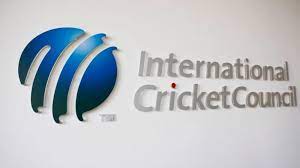The International Cricket Council (ICC) decided in early June to immediately implement regulations to control franchise T20 leagues. A few international cricketers chose to forego their national contracts in order to participate in lucrative Twenty20 leagues, prompting the ICC to make this decision.
The Chief Executives Committee (CEC) of the International Cricket Council (ICC) has now refused to implement any immediate restrictions to regulate T20 competitions. Notably, the proposals to restrict international cricketers’ participation in T20 leagues did not receive majority support at the July 11 meeting in Durban, and the resolution was ultimately rejected.
According to a report in Cricbuzz, sources close to the Annual Conference have revealed that the CEC will not conduct any further discussions on the aforementioned matter, despite the need to impose regulations on these types of competitions.
It is a consolation for the International League T20 (ILT20) in the United Arab Emirates and the Major League Cricket (MLC) in the United States that no resolution was enacted on Tuesday. The ILT20, which began in 2023, permits nine international players in the playing XI, whereas the upcoming MLC will only permit six international players.
Notably, international cricket organizations including the England and Wales Cricket Board (ECB) and Cricket West Indies (CWI) had criticized these two leagues for their extensive use of international cricketers. Both CWI and ECB frequently lost players to T20 franchise competitions. Recently, English batter Jason Roy renounced his international contract to compete for the MLC.
Also See | Ajinkya Rahane’s advice for Yashasvi Jaiswal ahead of West Indies Tests
Notably, the CEC has decided to implement restrictions beginning in April, and a working committee has been established in London. The committee recommended that no more than four foreign players be included in a team’s starting lineup and that the home boards of each foreign player receive 10% of their salary. Notably, the Board of Cricket Control in India (BCCI), which oversees the Indian Premier League (IPL), adheres to both principles but opposes placing restrictions on divisions.





